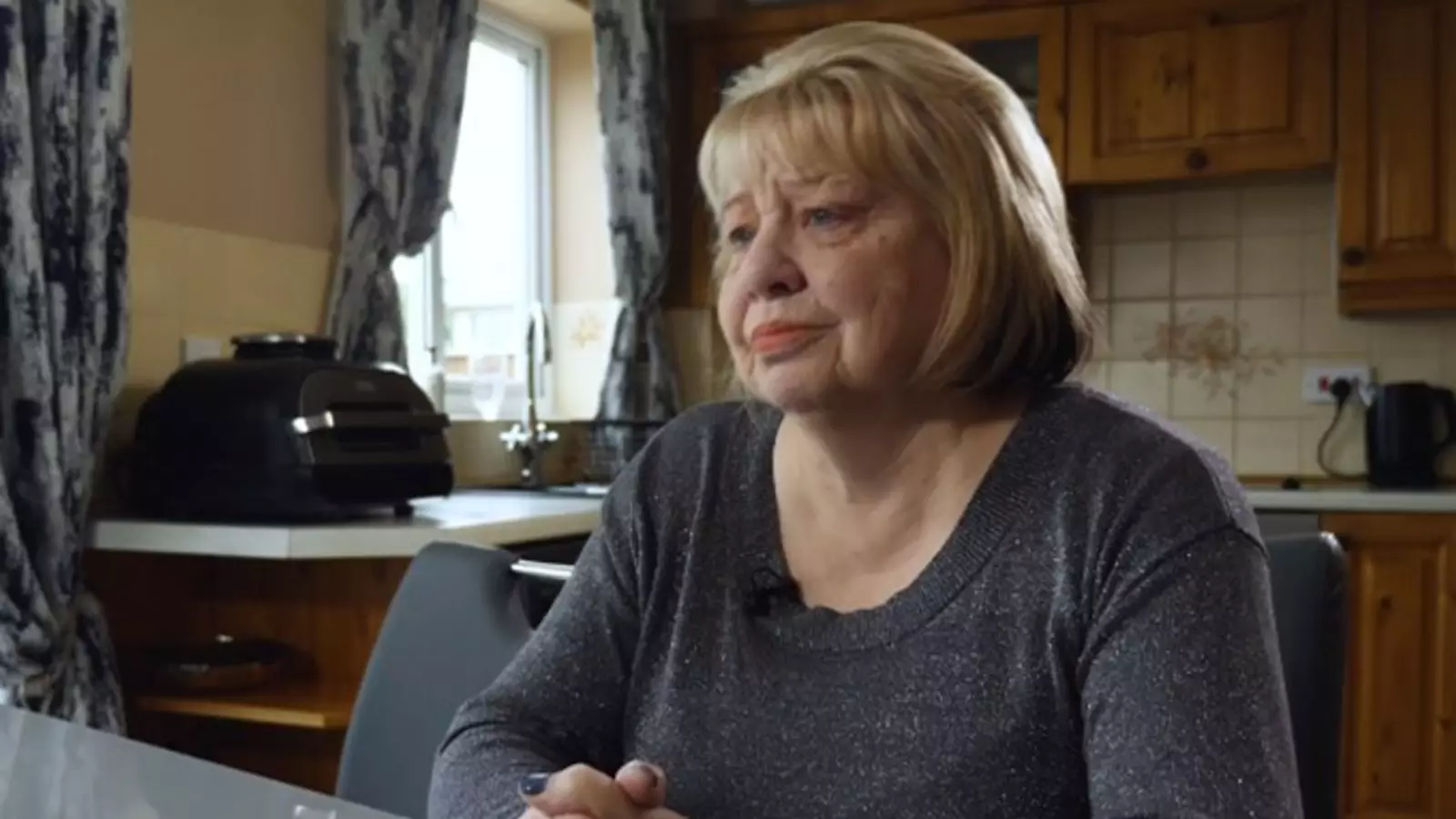The journey through severe illness is an emotionally charged and often harrowing experience for both victims and their families. Diane Edwards, a grieving widow, recently opened up about her tragic ordeal following the death of her ex-husband Mick, who succumbed to stage 4 terminal bowel cancer. Her account serves as a piercing reflection of the systemic shortcomings in healthcare—shortcomings that exacerbate the suffering of patients and their families, particularly in dire times.
Ten days post-Mick’s passing, Diane recalls painful memories that come rushing back like an unwelcome tide. Their shared moments in the bathroom, a place that turned into a battleground against illness, are forever etched in her mind. Drawing attention to the physical toll that cancer exacted on Mick, she explains how she often found herself in situations where his condition devolved rapidly, bringing forth visceral reminders of the man he once was. “It’s horrific,” she states, painting a stark portrait of a person transformed by illness—an echo of familiarity lost to the ravages of time and circumstance.
Mick’s journey through sickness was fraught with missed diagnoses and ill-timed interventions. Once blind and increasingly reliant on others for his mobility, the limited assistance offered by non-medical care staff was, as Diane pointed out, woefully inadequate. The emotional toll took its own form, with Diane reaching a critical breaking point, where the weight of caregiving and the stress of the healthcare system left her physically and emotionally drained. The reality of sleep deprivation and the toll it takes on one’s health and psyche is addressed candidly, illustrating how the effects of caregiving can extend far beyond the confines of the immediate situation.
After a year marked by chaotic hospital visits and erratic healthcare services, Mick was discharged with a fast-track care package under the NHS Continuing Healthcare (CHC) program. This program is designed to provide funding based on assessed health and social care needs. However, as Diane noted, Mick’s online assessment was alarmingly impersonal and deemed insufficient. The absence of family during such critical evaluations raises vital questions about the nature of these assessments, especially for individuals with deteriorating health—those who might struggle under the pressures of technology and unfamiliar processes.
As Diane faced the reality of communicated funding cuts, the weight of the situation bore down on both her and Mick. The emotional aftermath of such news is palpable; a once confident individual reduced to despair simply by the inadequacies of the system designed to care for him. It raises an essential dialogue about the accessibility and flexibility of care for individuals nearing the end of life—an area often neglected until it’s too late.
Systematic Failures and Regional Disparities
The Shropshire, Telford and Wrekin NHS Trust’s subsequent expression of sympathy feels hollow against the backdrop of Diane’s experience. The stark admissions about the inconsistencies in CHC assessments, as reported by think tanks like the Nuffield Trust, underscore critical inefficiencies embedded within the system. The disparity in eligibility rates across regions suggests a troubling lack of uniformity in healthcare delivery. From potential discrepancies in team training to socio-economic demographics, the consequences of such disparities are dire and far-reaching.
The acknowledgment of a crisis within the social care system resonates deeply, highlighting the pressing need for reform. While NHS England assures the public that assessments should centre around the individual, the question remains—are those assurances being translated into practice? Diane’s experience with her ex-husband serves as a poignant reminder that many families still navigate a labyrinth of bureaucracy during their darkest hours, often emerging battered and bruised by a system meant to support them.
The Aftermath of Advocacy
After several agonizing weeks, Mick’s CHC funding was eventually reinstated thanks to the intervention of a local GP and social worker. However, Diane’s reflection on the ordeal evokes concern that this experience is not an isolated incident but instead representative of a larger systemic issue. It leads one to ponder whether the system facilitates or frustrates access to necessary care for those on the precipice of death.
Mick’s wish for assisted dying, had it been available, emphasizes the urgency of the discussions around patient autonomy and end-of-life options. While the emotional weariness that comes from navigating the healthcare maze is overwhelming, it highlights a greater necessity for systemic change—changes that must prioritise compassion, understanding, and ultimately, human dignity.
Diane Edwards’ narrative is a tale of heartbreak that underscores an urgent call for reform in healthcare systems. It raises critical questions about how we care for the most vulnerable members of society and reminds us that beyond statistics and policies, there are real lives—broken and in need of compassion.

Leave a Reply